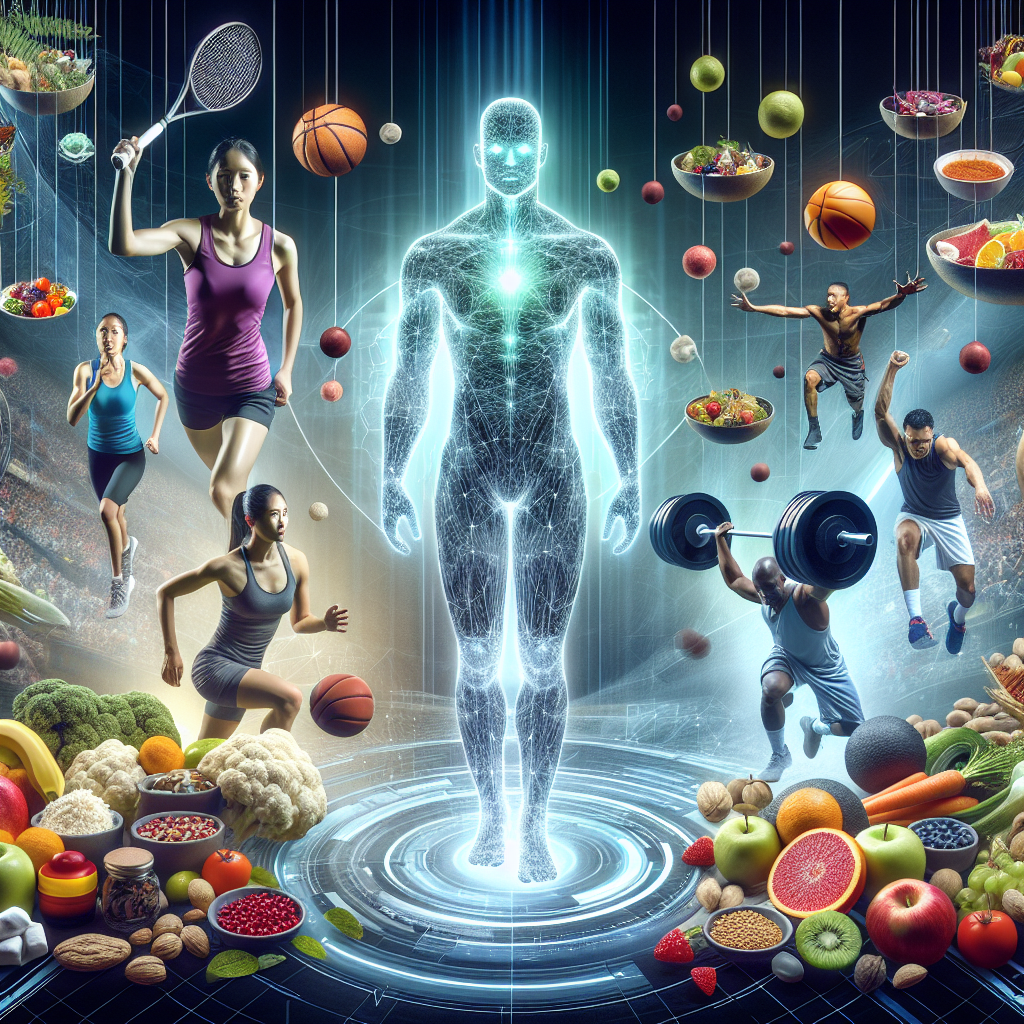Artificial intelligence (AI) has been revolutionizing various industries, and sports nutrition is no exception. With the help of AI technology, athletes and fitness enthusiasts can now optimize their diet and training routines to achieve peak performance. From personalized meal plans to real-time performance monitoring, AI in sports nutrition offers a wide range of benefits. In this article, we will explore the advantages of using AI in sports nutrition and answer some frequently asked questions about this innovative technology.
Benefits of AI in Sports Nutrition:
1. Personalized Meal Plans: One of the key benefits of AI in sports nutrition is the ability to create personalized meal plans based on an individual’s specific needs and goals. AI algorithms can analyze a person’s dietary preferences, nutritional requirements, and training regimen to recommend the most optimal meal plan for them. This personalized approach ensures that athletes are getting the right balance of macronutrients and micronutrients to fuel their performance and recovery.
2. Nutrient Timing Optimization: AI technology can also help athletes optimize the timing of their nutrient intake to maximize performance and recovery. By analyzing data such as training schedule, energy expenditure, and metabolic rate, AI algorithms can determine the best times to consume macronutrients like carbohydrates, proteins, and fats. This precision timing can enhance muscle glycogen replenishment, protein synthesis, and overall recovery after intense workouts.
3. Performance Monitoring: AI-powered devices such as wearable fitness trackers and smart scales can track an athlete’s performance metrics in real-time. These devices can monitor parameters like heart rate, calorie expenditure, sleep quality, and hydration levels to provide valuable insights into an athlete’s overall health and fitness. By analyzing this data, athletes can make informed decisions about their training and nutrition strategies to optimize performance and prevent injuries.
4. Injury Prevention: AI technology can also help athletes prevent injuries by analyzing movement patterns and biomechanics during training and competition. By using motion capture technology and machine learning algorithms, coaches and sports scientists can identify potential risk factors for injuries and develop targeted interventions to mitigate these risks. This proactive approach to injury prevention can prolong an athlete’s career and improve their long-term health and well-being.
5. Recovery Optimization: Proper recovery is essential for athletes to perform at their best and avoid burnout. AI in sports nutrition can help athletes optimize their recovery strategies by analyzing factors such as sleep quality, stress levels, and nutrient intake. By providing personalized recommendations for recovery techniques like rest, hydration, and supplementation, AI technology can help athletes recover faster and bounce back stronger from intense training sessions and competitions.
6. Performance Prediction: AI algorithms can analyze large datasets of athlete performance metrics to predict future performance outcomes. By using machine learning models, coaches and sports scientists can forecast an athlete’s performance potential based on factors like training history, nutrition status, and injury risk. These predictions can help athletes set realistic goals, track their progress, and make adjustments to their training and nutrition plans to achieve peak performance on game day.
7. Enhanced Communication: AI technology can facilitate communication between athletes, coaches, and sports nutritionists to ensure seamless collaboration and coordination. By using AI-powered chatbots and virtual assistants, athletes can receive personalized nutrition recommendations, training tips, and performance feedback in real-time. This instant feedback loop can help athletes stay motivated, accountable, and on track with their goals, leading to better performance outcomes in the long run.
Frequently Asked Questions about AI in Sports Nutrition:
Q: How can AI technology help athletes improve their diet and nutrition?
A: AI technology can analyze an athlete’s dietary preferences, nutritional requirements, and training regimen to create personalized meal plans that optimize performance and recovery. By recommending the right balance of macronutrients and micronutrients at the right times, AI can help athletes fuel their workouts, enhance muscle growth, and speed up recovery.
Q: What are some examples of AI-powered devices used in sports nutrition?
A: Wearable fitness trackers, smart scales, and motion capture technology are examples of AI-powered devices used in sports nutrition. These devices can track performance metrics in real-time, monitor movement patterns and biomechanics, and provide personalized recommendations for training, nutrition, and recovery strategies.
Q: How can AI technology help prevent injuries in athletes?
A: AI technology can analyze movement patterns, biomechanics, and performance metrics to identify potential risk factors for injuries in athletes. By using machine learning algorithms to predict injury risk and develop targeted interventions, coaches and sports scientists can help athletes prevent injuries and stay healthy throughout their training and competition.
Q: How can athletes benefit from using AI technology for recovery optimization?
A: AI technology can analyze factors like sleep quality, stress levels, and nutrient intake to provide personalized recommendations for recovery techniques such as rest, hydration, and supplementation. By following these recommendations, athletes can recover faster, reduce muscle soreness, and improve their overall performance and well-being.
Q: How can AI technology help athletes predict their performance outcomes?
A: AI algorithms can analyze large datasets of athlete performance metrics to predict future performance outcomes based on factors like training history, nutrition status, and injury risk. By using machine learning models to forecast performance potential, athletes can set realistic goals, track their progress, and make adjustments to their training and nutrition plans to achieve peak performance on game day.
In conclusion, AI technology has the potential to revolutionize sports nutrition by providing athletes with personalized meal plans, optimizing nutrient timing, monitoring performance metrics, preventing injuries, optimizing recovery, predicting performance outcomes, and enhancing communication between athletes, coaches, and sports nutritionists. By harnessing the power of AI, athletes can take their training and performance to the next level and achieve their goals faster and more efficiently. As AI continues to advance and evolve, the possibilities for enhancing sports nutrition and performance are endless.

